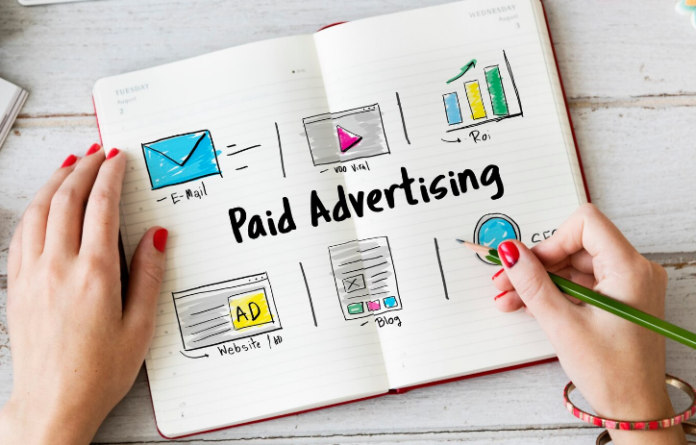In the current digital age in which consumers are increasingly dependent on websites to shop, get information, and entertainment, businesses must adopt efficient strategies for marketing to get the attention of their audience. One of these strategies is Pay-Per-Click (PPC) advertising has become a potent method that allows businesses to reach out to potential customers quickly and efficiently.
This method, in which advertisers pay a fee every time a user clicks on their advertisement, has a variety of advantages that significantly boost digital marketing efforts. This article examines the primary benefits that come with PPC advertising as a part of a complete Digital Marketing Strategy.
1. Immediate Visibility
One of the most appealing benefits that comes with PPC advertisements is the instant impact it has on visibility. In contrast to natural Search Engine Optimization (SEO) which could take months to see results If you have a well-organized PPC campaign will place your ads on the first page of the search results in a matter of minutes. This is especially beneficial for businesses that are new or who are launching a new product. Being able to get the attention of customers immediately is essential particularly in a highly competitive market, allowing companies to begin driving traffic and creating leads as soon as they can.
2. Highly Targeted Advertising
PPC platforms, like Google Ads and social media platforms like Facebook and Instagram, allow advertisers to reach their target audience by a variety of factors, such as demographics, preferences, behavior, and geographical area. This type of targeting makes sure that your advertisements are displayed to those who are likely to find interesting in the goods or services, which results in better quality traffic and increased conversion rates.
For example, if you operate an establishment in the local area and you want to target customers within a particular area around your store make sure that your advertisements target potential customers likely to come to your establishment. This ensures that you don’t waste money and improves the performance of ads.
3. Cost Control and Flexibility
PPC advertising is distinctive in that it offers advertisers considerable ability to control their spending. Businesses can set monthly or daily spending limits to ensure that they do not overspend their budgets. Furthermore, PPC platforms allow for different bidding strategies, which allows advertisers to control costs efficiently while increasing the return they earn (ROI).
This flexibility is particularly beneficial for small companies with a limited budget for marketing. They can begin with a small amount of money and then increase their budgets when they notice positive outcomes. If a specific strategy or ad isn’t working well, marketers can stop the campaign or adjust their budgets to allow flexibility in their marketing strategies.
4. Measurable Results and Analytics
One of the best characteristics that is unique to PPC advertisement is the abundance of information and data it offers. Advertisers can track crucial metrics like click-through rates (CTR) conversion rates and cost-per-click (CPC) as well as the overall ROI. This method of data-driven marketing allows businesses to evaluate the performance of their campaigns in real time.
By studying these metrics, marketers can make educated choices regarding the performance of their ads and can identify top-performing keywords, effective advertising copywriting, and effective strategies for targeting. Continuous optimization can improve the performance of campaigns as time passes.
5. Increased Brand Awareness
Even if potential customers don’t view your ads having them prominently placed in search results can contribute to the brand’s visibility. If users often come across your company’s name through search results, it helps reinforce your brand’s identity and increases your brand’s visibility.
The recurring exposure can create an effect that lasts, causing consumers to recall your brand whenever they make purchases. In the end, PPC advertising does not just drive immediate traffic, but it is also a key factor in establishing brand recognition over time.
6. Remarketing Opportunities
PPC advertising also has a powerful ability to remarket. This method lets advertisers show ads to customers who previously visited their site but didn’t become customers. Through re-engaging potential customers through targeted messages businesses can entice them to visit again and finish their purchase.
Remarketing is particularly effective as it targets customers who have expressed a desire for your products or services, thereby making those more likely to purchase. By reminding them of their previous interaction with your company, companies can boost the probability of a successful transaction.
7. A/B Testing Framework
PPC advertising is a great way to test and refine messages by A/B testing. Advertisers can create different versions of ads that include variations in headlines, graphics, and calls to action to determine which versions perform better. This methodical approach to testing ads can help in optimizing future campaigns by finding the most efficient elements.
For instance, if an advert with a promotional offer is more successful in converting than a similar ad without a promotion The insights gained guide future strategies for advertising. This cycle of testing results in ongoing enhancements and increased interaction with the intended public.
8. Integration with other marketing strategies
PPC advertising is seamlessly integrated within a larger online marketing system. It is a great complement to other strategies for marketing like content marketing social media marketing and SEO. For example, the data gleaned from PPC campaign management services can help inform content strategies, and ensure that landing pages and blogs are optimized for high-performance keywords.
In addition, companies can use PPC to get traffic from specific events while relying upon organic results for long-term viability. This combination increases visibility and helps create a seamless marketing strategy that is modified to meet the needs of the business.
Conclusion
Pay-per-click advertising is an integral element of a successful strategy for digital marketing. Its advantages immediate visibility, precise targeting, cost control, measurable results, increased brand awareness, remarketing opportunities, A/B testing, and ease of integration making it a robust tool for businesses looking to enhance their online presence and drive conversions. By implementing PPC advertising strategies and continuously optimizing campaigns based on performance information, businesses can increase their revenue significantly and beat their competition in the constantly evolving digital market.
FAQs
What exactly is PPC advertising?
PPC advertisement is a marketing strategy in which advertisers pay a cost every time an advertisement is clicked. It usually appears on search engines as well as the social media sites.
What is the process behind PPC function?
Advertisers place bids on keywords related to their business, resulting in advertisements that appear in search results for these specific keywords. They only get paid when a user clicks on their ads.
What are the most popular platforms used for PPC advertising?
Principal platforms include Google Ads, Bing Ads, Facebook Ads, Instagram Ads as well as LinkedIn Ads.
How do I figure out the amount of my PPC budget?
Budgeting should be determined by your marketing objectives overall as well as your cost-per-click for your sector, and also the amount you’re willing to spend on getting new customers.
What are the metrics I should be tracking when I am using PPC advertising?
Important metrics to keep track of include the click-through rate (CTR) as well as conversion rates cost-per-click (CPC) and ROI (ROI) and total the volume of traffic generated








